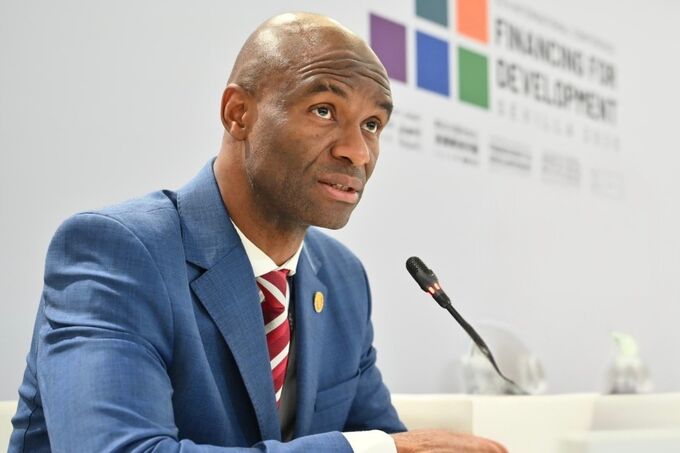
News
4 ways Africa can accelerate the spread of Inclusive Instant Payment Systems
by Serge Moungnanou, Partnership, Advocacy and Capacity Building Specialist - 11 March 2025
Instant Payment Systems (IPS) are rapidly transforming Africa’s financial landscape. The State of Inclusive Instant Payment Systems in Africa 2024 (SIIPS 2024) report and the experts who convened at the report’s launch to discuss key issues in IPS development highlight areas of progress, such as:
- IPS in Africa are growing in number and in the payment volumes and values they fulfill. The number of cross-domain IPS that support both banks and non-bank payment providers has grown from two in 2017 to 14 systems in 2024, transacting more than USD 481 billion within Africa in 2023.
- The AfricaNenda IPS Inclusivity Spectrum is an increasingly relevant benchmarking tool for regulators and policymakers to measure their progress in making their IPS available to the largest number of end users in their markets.
- Payment system stakeholders increasingly focus on making inclusive IPS, or IIPS, a reality.
Here, we highlight four considerations from the report, reinforced in discussions between the central bankers, scheme operators, and financial inclusion advocates who attended the SIIPS launch event in November 2024 in Accra, Ghana, on what should happen next to accelerate inclusive instant payments.
Consideration #1: Prioritize inclusive channels and functionality early in IPS design and implementation
During the SIIPS 2024 launch event, leaders from the Ghana Interbank Payments and Settlement System (GhIPSS), the Nigeria Inter-Bank Settlement System (NIBSS), Rwanda Switch (RSwitch), and Tanzania Instant Payment System (TIPS) discussed the different ways their schemes have pursued greater inclusivity.
One scheme started by interconnecting mobile money systems for person-to-person (P2P) payments. Yet, it saw a dramatic increase in transaction volumes only after introducing merchant QR codes and interoperability with card systems. This broke barriers for both merchants and consumers by offering payment options.
Another scheme enabled web-based P2P services and Unstructured Supplementary Service Data (USSD) channels to reach rural and unbanked populations, thus enabling inclusive scale.
These examples demonstrate that the dominant mix of channels and functionality will vary by country but must deliver what the largest share of end users need to embrace and trust the service.
Consideration #2: Embrace strategies that enhance the efficiency and affordability of cross-border payments
The SIIPS series includes deep-dive research on cross-border payments and the challenges to making them more affordable and efficient. Leaders from the African Union Commission, the Arab Monetary Fund, the Bank for International Settlements, and Transactions Cleared on an Immediate Basis took up that topic in Ghana to highlight strategies related to intra-Africa cross-border payments. These include regulatory harmonization, 24/7/365 operational alignment, and cross-border payment settlement, all of which have the potential to reduce friction in cross-border transactions.
For example, standards could facilitate integration between IPS and help enable 24/7/365 operations. Regional payment systems can also facilitate connections between countries and simplify multi-jurisdictional processes.
Even with these interventions, currency risk remains a challenge. An initiative like the AUC-supported Pan-African Payment and Settlement System (PAPSS) holds promise for alleviating that risk.
Consideration #3: Leverage Digital Public Infrastructure (DPI), consumer insights, and trends around central bank digital currencies to shape IPS development
Consumer insights are critical to building inclusive IPS that can provide the payments layer for digital public infrastructure (DPI) and facilitate transactions in central bank digital currencies (CBDCs).
Speakers from the Bank of Ghana shared details of its CBDC pilot as an example of the importance of involving diverse demographics—like youth, retirees, and small businesses—to ensure systems meet various needs. Mapping existing infrastructure and collaborating with core payment providers enabled the Bank of Ghana, in its view, to build a trusted, seamless, inclusive CBDC.
World Bank and Gates Foundation speakers shared that IPS are an essential milestone toward DPI and should be considered a necessary foundation before introducing retail CBDCs.
Consideration #4: Improve interoperability and fintech licensing to help scale IIPS in Africa
Enabling non-bank providers such as fintechs to compete in financial and payment markets is essential for reaching customers that the traditional banking sector struggles to service. Public-private collaboration toward this end is necessary.
For example, the Central Bank of Eswatini launched a fintech working group to guide fintech development and established a dedicated department focused on this sector. The central bank also passed legislation enabling non-banks to participate in the financial industry. This strategic emphasis on financial inclusion enabled providers in the country to deliver digital wallets more easily.
Another example from the Bank of Sierra Leone highlighted how it helped advance fintech development by introducing a fintech challenge and a regulatory sandbox. Last year, the country launched card switching and POS (point of sale) services, with the two major mobile money operators set to join the switch soon. The central bank also ended bilateral integrations and mandated providers to connect via a central switch.
What’s next for IIPS?
Breaking down barriers to inclusive access to payments in Africa isn’t easy. Every step brings new challenges—and new opportunities.
At AfricaNenda Foundation, we don’t just respond to challenges; we help shape the future by partnering with visionary stakeholders, offering technical assistance, building capacity, advocating for inclusivity, and gathering benchmark data. Our goal, as always, is to accelerate access to inclusive instant payment systems and thereby accelerate financial inclusion for all in Africa.
The movement has already begun. Will you join us?


